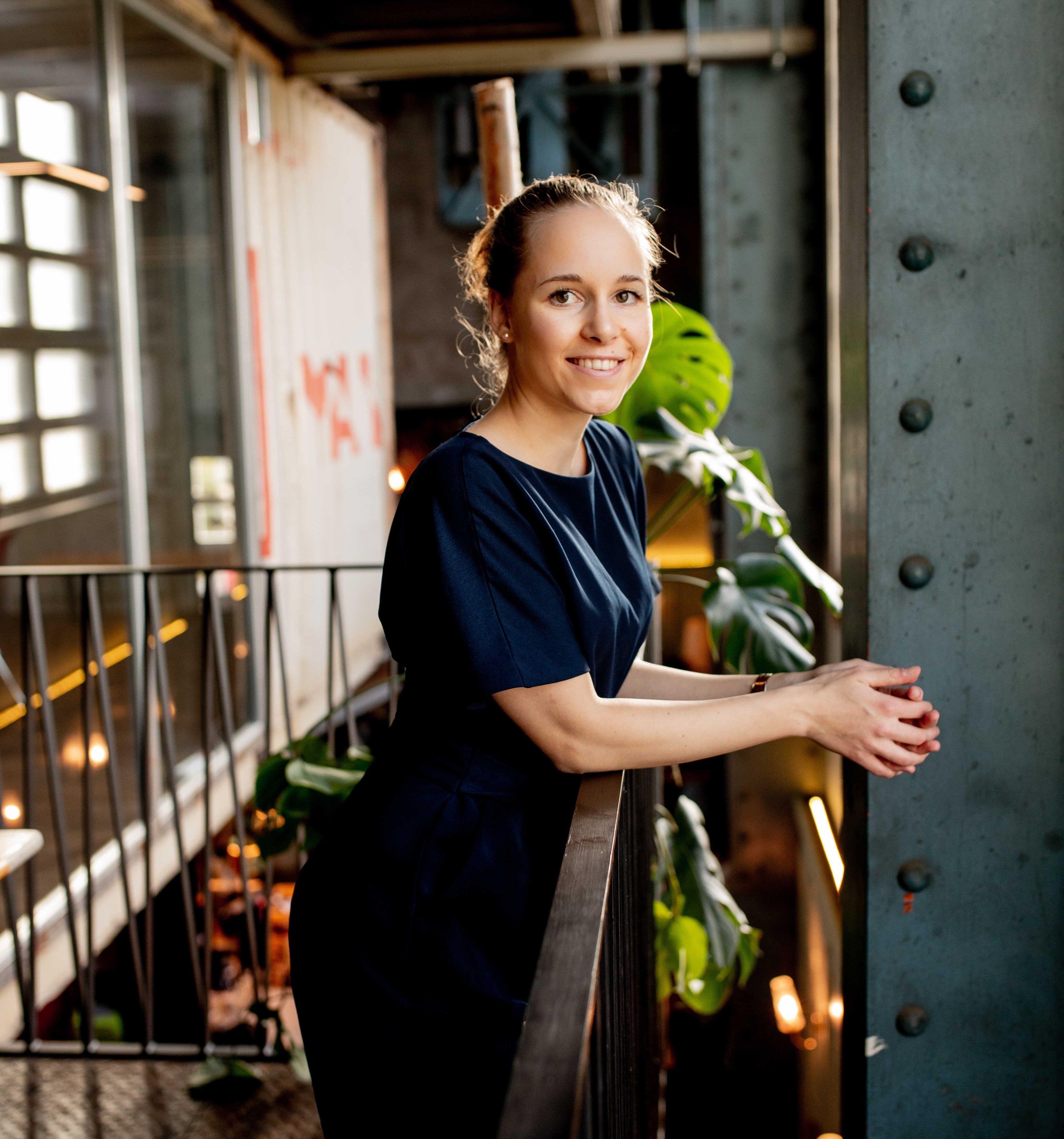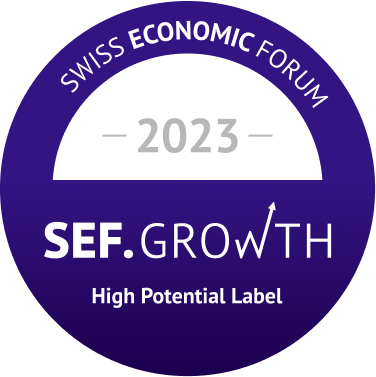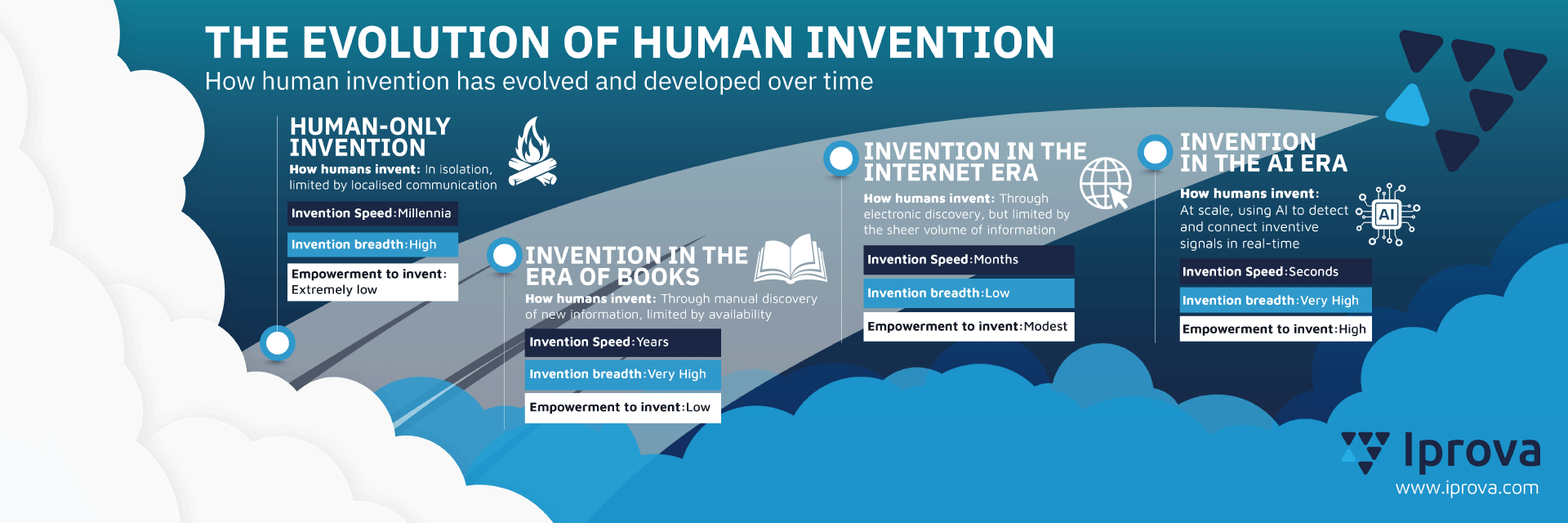Reinventing how humans invent
Inventions define the products that we use every day – mobile phones, cars and even pencils, for example. But despite their value, the way inventions are created is still an artisanal and, very often, haphazard activity. Iprova has developed an AI-based technology that supports humans in the creation of inventions in a much more robust, efficient and systematic way.
Iprova SA
10 November 2023
Swiss-based Iprova is revolutionising how companies invent by using AI and other technologies to make the process more robust, reliable and repeatable. With the amount of information in the world expanding increasingly rapidly, it is very often difficult for inventors to monitor developments in their own field, let alone to be aware of potentially useful advances in other domains. Iprova’s Invention Studio platform enables inventors to become aware of relevant market and technology advances, in real-time, that are relevant to their field, irrespective of the domain they occur in, and create new inventions as a result
Fresh inputs lead to new Inventions
Iprova’s success is based on its ability to bring together, at the right time, the relevant pieces of information that inventors need to develop valuable inventions. Advances and developments in distant, often unrelated fields, can be brought together and – with input from the human inventor – used to create patentable inventions that address high value points of market and technological disruption.
This is neatly summarised by Iprova’s CEO Julian Nolan: "Our software looks around the world to identify inventive signals that could be used in other areas, too. It processes this and adds additional information, with the effect that invention not only becomes a more deterministic and efficient activity, but a much more accessible and widespread one too.”
Skepticism resolved quickly
Despite facing some skepticism in the early days of Iprova, Julian Nolan has maintained his conviction in his business idea. “We wanted to disrupt something that hasn’t changed for centuries. Additionally, when I founded the company, people were a lot more skeptical towards AI than they are today,” he says.
But not everyone was skeptical. For example, elite customers like Philips have trusted Iprova’s technology from early on and have been repeat customers for many years. Another crucial aspect to Iprova’s early development was receiving funding from the Confederation’s innovation promotion agency (CTI). “I think without CTI, we would not exist. Their support was essential to us being able to prove that the concept worked.” says Julian.
Combining technology and human skills
With Iprova, although its technology is critical to its success, humans are very much involved in the process. Its technology alerts users to “ingredients” that they would otherwise not have come across in today’s information-rich, time-poor world. Julian explains vividly: "If a chef always cooks with the same ingredients and background, they will always create the same dishes. With new ingredients, however, they will produce dramatically different ones. The same applies to inventing things in any industry. You need new information to create new inventions."
Imagine a brilliant chef in Paris, who is globally acknowledged to be the master of French cuisine. They are definitely the best person to further develop French cuisine within its traditional boundaries. But will they be able to quickly produce wonderful new dishes based on a combination of very disparate old and new ingredients, many of which are totally alien to traditional French cuisine? This task had better be left to a cook with the right tools. A cook who, using their tools, is aware of all existing ingredients worldwide and their possible combinations, even the ones never used before. A cook who monitors the birth of exciting new ingredients, in real time and globally. A cook who instantly understands the flavours involved in the combinations of ingredients, old and new, and their potential for delicious new recipes. In other words, a cook augmented by tools which can work much quicker and more effectively than any traditional individual human cook.
Reaching milestones all across the world
Iprova works with many large companies around the world and has helped organisations such as Nokia, Procter & Gamble and Sony to create new product-defining inventions and file patents. "A pivotal moment was getting our first US customer, a big tech company in Silicon Valley. This was the springboard for our development in the US and has been followed by many other large US corporations," Julian explains proudly. Two other important milestones were signing up the first customer in Japan and sealing a deal with consumer goods company BIC for them to set up the world’s first data-driven invention lab.
Iprova is particularly proud of its latest achievement – being awarded the SEF High Growth Potential label. “This accolade not only recognises the huge progress that we have made, but it also gives us confidence to move forward, both with our future growth plans and the financing round that we are aiming to close in the first quarter of 2024. Having our plans and strategy critiqued and validated by leading specialists has added a lot of value” says Julian. “The SEF High Growth Potential label is both a value-creating process and a huge accolade and I would recommend it to other Swiss companies who are looking to scale-up.”
The author

Alyssia Kugler
Communications SEF.Growth
Alyssia Kugler writes freelance for various publications on topics that concern startups. She is committed to startups as the managing director of the Entrepreneur Club Winterthur.


